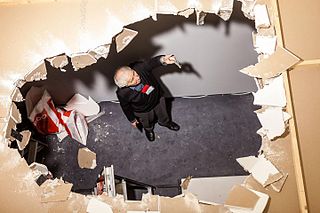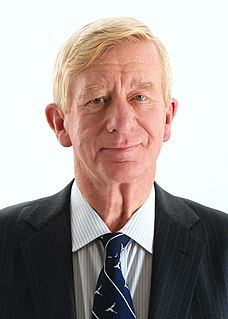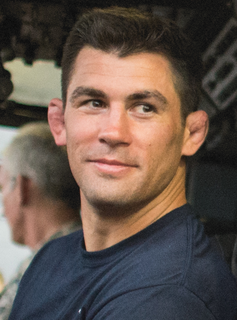A Quote by Simon Blackburn
It is sometimes said that one of the casualties of the general suspicion and mistrust that permeated the old Soviet Union was that the distinction between truth and other motivations to believe tended to break down. Upon hearing a purported piece of information, the reaction was not 'Is this true?' but 'Why is this person saying this? - What machinations or manipulations are going on here?' The question of truth did not, as it were, have the social space in which it could breath.
Related Quotes
Strong countries and strong presidents talk to their adversaries. That's what Kennedy did with Khrushchev. That's what Reagan did with Gorbachev. That's what Nixon did with Mao. I mean think about it. Iran, Cuba, Venezuela - these countries are tiny compared to the Soviet Union. They don't pose a serious threat to us the way the Soviet Union posed a threat to us. And yet we were willing to talk to the Soviet Union at the time when they were saying we're going to wipe you off the planet.
Why were the Europeans bothered about the Soviet Union at all? It was nothing to do with us. China had nothing to do with us. Why were we not building, without reference to the Soviet Union, a good society in our own countries? But no, we were all - in one way or another - obsessed with the bloody Soviet Union, which was a disaster. What people were supporting was failure. And continually justifying it.
There is no battle space the U.S. Military cannot access. They said we couldn't do Afghanistan. We did it with ease. They said we couldn't do Iraq. We did it with 150 combat casualties in six weeks. We did it so fast we weren't prepared for their collapse. There is nobody we can't take down. The question is, what do you do with the power?
Don't believe Wikipedia, not everything written there is true. The Soviet Artists Union was not a communist party organization. It was a professional union, which did not protect you from the government if the government decided you were the enemy, but it did give you the possibility to work in your profession and survive.
Sometimes you hear a person speak the truth and you know that they are speaking the truth. But you also know that they have not heard themselves, do not know what they have said: do not know that they have revealed much more than they have said. This may be why the truth remains, on the whole, so rare.
The most ancient parts of truth . . . also once were plastic. They also were called true for human reasons. They also mediated between still earlier truths and what in those days were novel observations. Purely objective truth, truth in whose establishment the function of giving human satisfaction in marrying previous parts of experience with newer parts played no role whatsoever, is nowhere to be found. The reasons why we call things true is the reason why they are true, for to be true means only to perform this marriage-function.
Sometimes I don't tell the truth, which is telling the truth about not telling the truth. I think people don't tell the truth when they're afraid that something bad's going to happen if they tell the truth. I say things all the time that I could really get into trouble for, but they kind of blow over.
Truth and falsity, indeed understanding, is not necessarily something purely intellectual, remote from feelings and attitudes. ... It is in the total conduct of men rather than in their statements that truth or falsehood lives, more in what a man does, in his real reaction to other men and to things, in his will to do them justice, to live at one with them. Here lies the inner connection between truth and justice. In the realm of behavior and action, the problem recurs as to the difference between piece and part.
When I was 18, I went to the Soviet Union. I kept hearing that America was planning to bomb them - lots of bombs were going to come down on these people. I went there not knowing anything, except that I thought the whole thing was stupid and that I wanted to see who these people were that we were going to bomb.
I believe in the platform of the Libertarian party, which is different from that of the other two parties and I believe that it would be good for the country if the Libertarians were - had a seat at the table to speak truth to power of the other two parties, which now have this monopoly in Washington. Having said that, I'm not taking back anything I said about the massive difference between the two establishment party candidates.




































